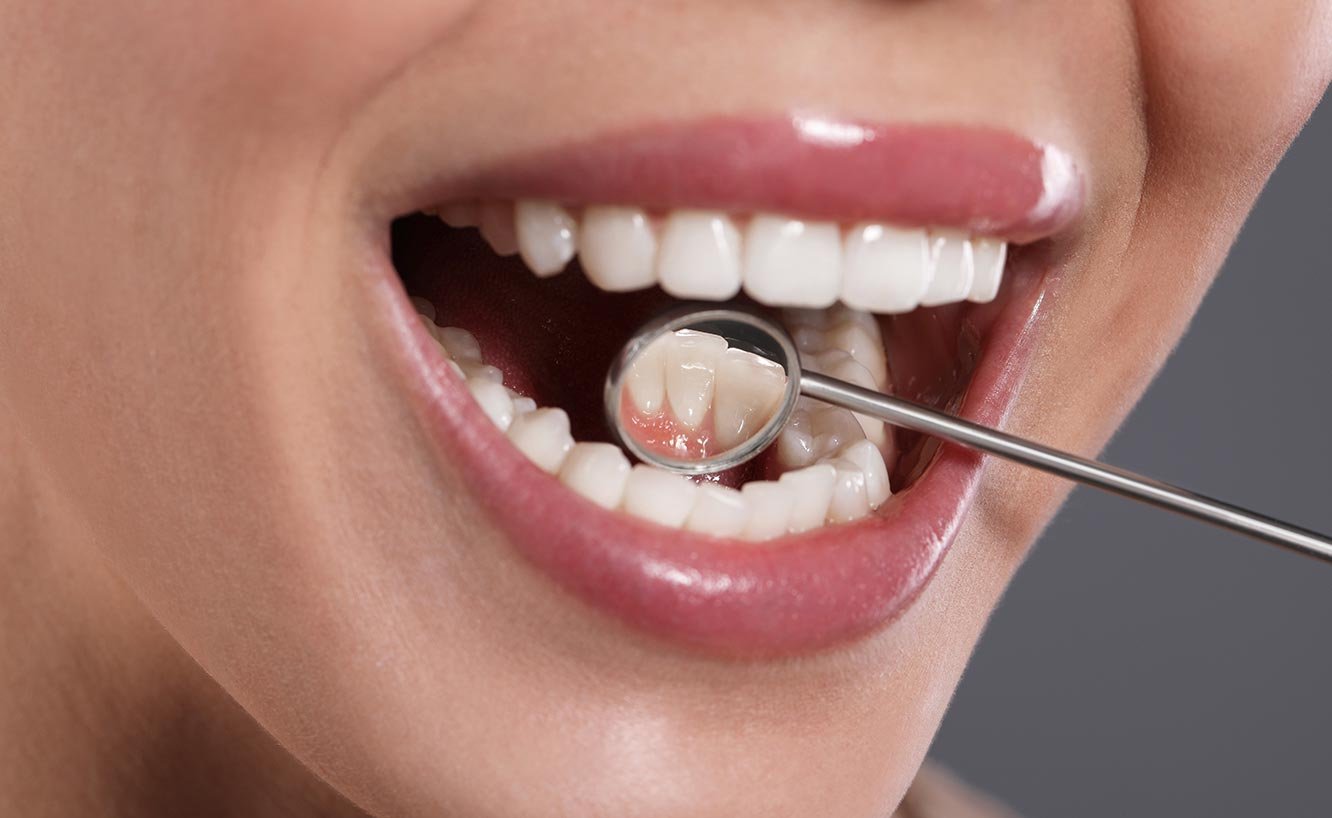Oral Dental Screening
Home >> Oral Dental Screening
Oral cancer screenings help healthcare providers look for signs of cancer in your mouth. They’ll examine the lining of your cheeks, gums, lips, tongue, and floor and roof of your mouth to check for lesions and abnormalities. If they find anything suspicious, they’ll refer you to an oncologist for further testing.
An oral cancer screening is an exam to look for signs of cancer in your mouth. Oral cancers include mouth cancer, jaw cancer and tongue cancer.
The areas examined during an oral cancer screening include:
- Cheek lining.
- Floor and roof of your mouth.
- Gums.
- Lips.
- Tongue.
- Tonsils.
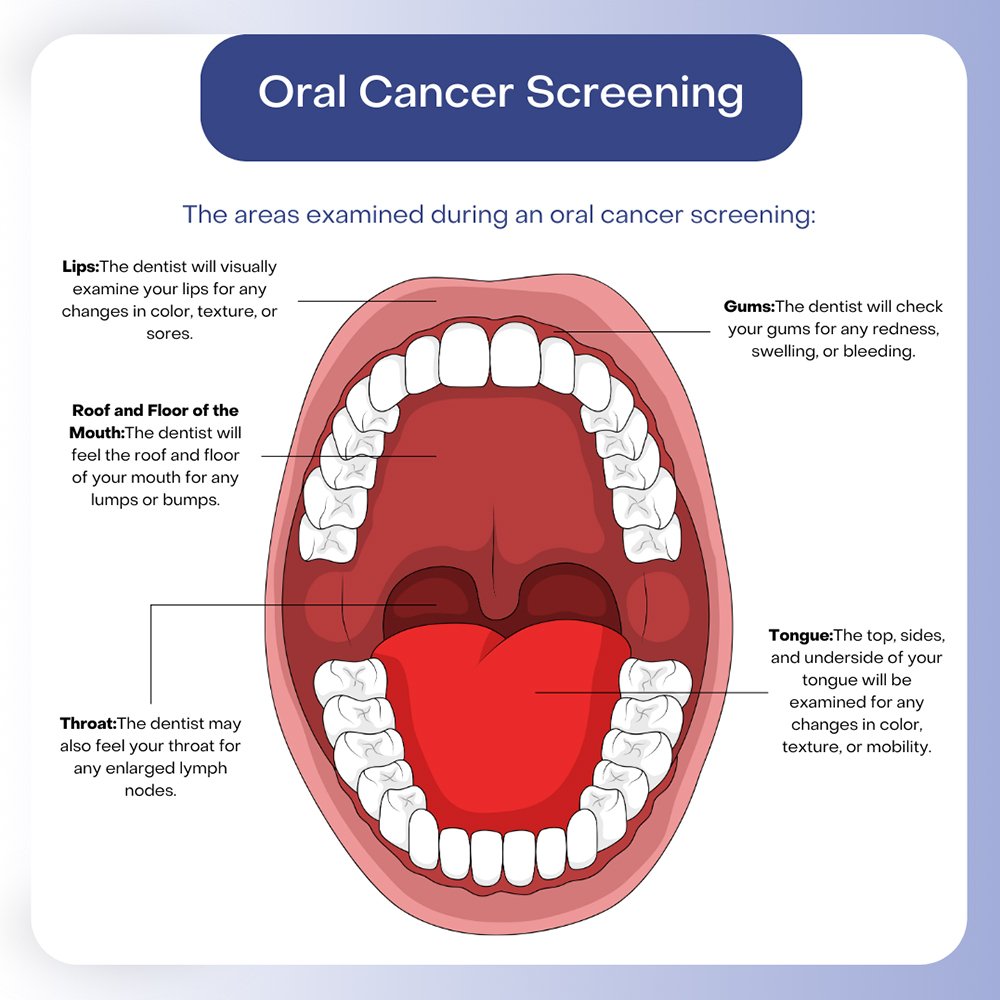
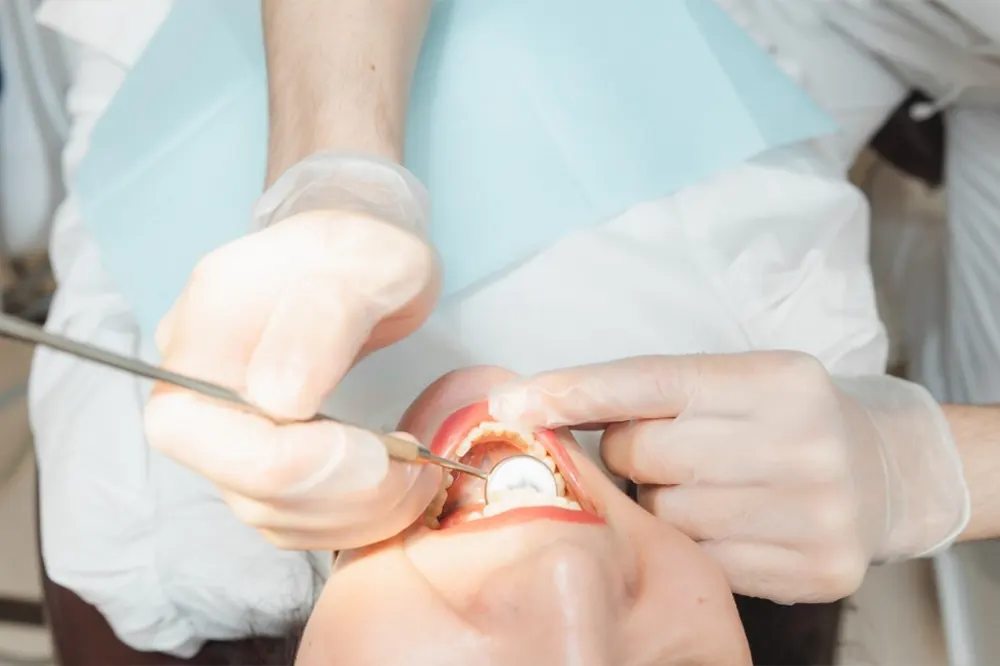
Why are oral cancer screenings so important?
Oral cancer is a common cancer of the head and neck, affecting people all around the world. Nearly 54,000 Americans receive an oral or oropharyngeal cancer diagnosis each year.
Oral cancer has a five-year survival rate of 57%. This means that just a little more than half of the people diagnosed with oral cancer are alive five years after their diagnosis. Oral cancer isn’t particularly difficult to diagnose. But fatality rates are high because oral cancer is too often detected late in its development. Oral cancer screenings are the best tool available for early diagnosis and treatment.
What should I expect during my oral cancer screening?
Your healthcare provider may use a combination of oral cancer screening methods, including a visual exam, palpation, and oral screening dyes and lights. They may also take photos of any abnormal areas so they can monitor them. In general, screenings take less than five minutes.
Visual exam: During this portion of the exam, your healthcare provider will look for lesions (areas of abnormal tissue) in your mouth and throat. These abnormalities may include leukoplakia (thick white patches) and erythroplakia (abnormally red areas).
Palpation: Your healthcare provider will also use their fingers to feel (palpate) for lumps or bumps around your face, neck and jaw. Be sure to let them know if you have areas that are sore or tender.
Oral cancer screening dye: Many healthcare providers use oral cancer screening tools — like toluidine blue dye — to look for signs of oral cancer. They’ll coat any lesions with the dye, which can help identify areas that are likely to become cancerous.
Oral cancer screening light: There are also special lights that can help identify abnormal tissues in your mouth. To use this tool, your healthcare provider will ask you to rinse your mouth with a fluorescent mouthwash. Next, they’ll shine a special light in your mouth, which makes healthy tissue look dark and abnormal tissue look white.
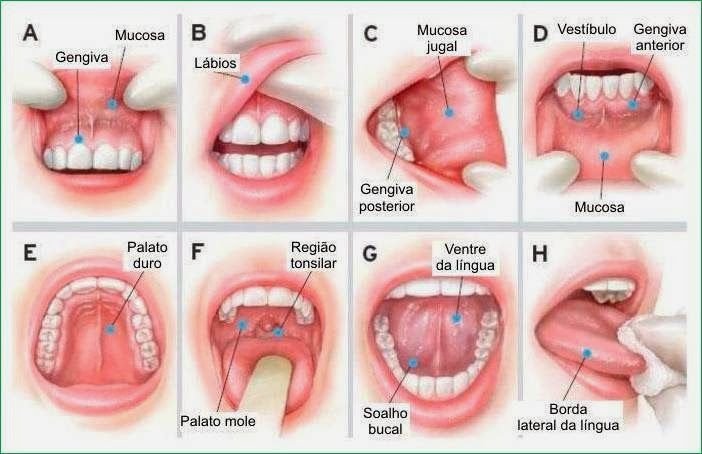
What happens after the oral cancer screening?
As mentioned above, screenings look for signs of cancer. But you’ll need more testing to get an official diagnosis.
After your oral cancer screening, your healthcare provider will share their findings with you. If the screening indicates that cancer could be present, your provider will refer you to a specialist for further assessment. Tests may include:
Cytology: A provider collects cells from your mouth with a brush, piece of cotton or wooden stick. Then, a pathologist looks at the cells under a microscope to see if they’re abnormal.
Biopsy: During this test, a provider removes a portion of the abnormal tissue and sends it to a pathologist for analysis.
Your healthcare provider may also recommend a follow-up visit in a week or so to see if the lesion has changed or healed on its own.
Partner with Us in the Fight Against Oral Cancer
Early detection is crucial in the fight against oral cancer, and we're committed to making screening accessible to everyone. We offer several ways for you to get involved and help us make a difference:
When should I know the results?
Your healthcare provider can share their findings with you immediately after your oral cancer screening.
If you undergo more testing — such as a biopsy — it typically takes three to five days to get your results.
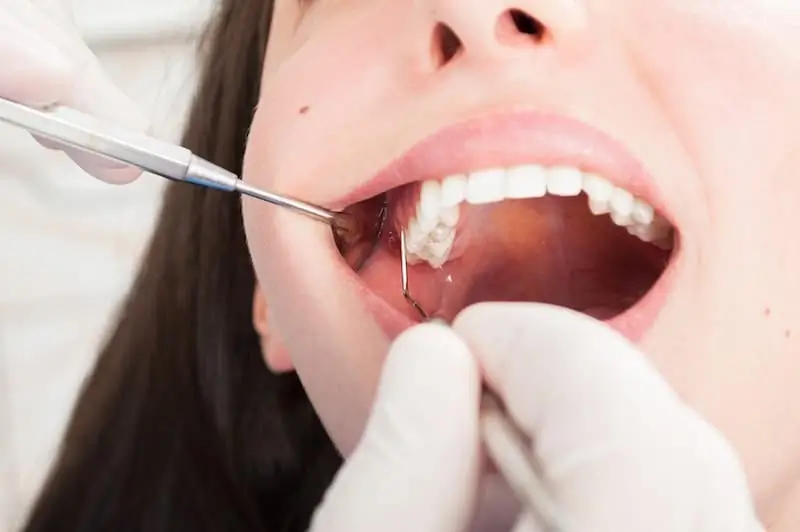
Free Oral Cancer Screening:
We believe that everyone deserves access to potentially life-saving screenings. We regularly organize free oral cancer screening events in communities. These events offer a quick, painless, and potentially life-saving examination by trained professionals. Check our events calendar below for upcoming screening opportunities near you. Early detection significantly increases the chances of successful treatment and survival.
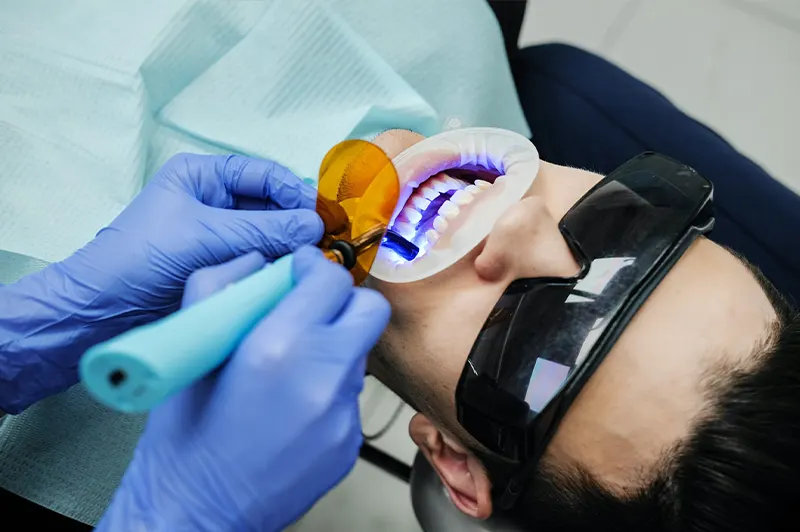
Add Your Company for Screening Cancer:
Want to make a real impact on the health and well-being of your employees? Partner with us to bring free oral cancer screenings directly to your workplace. We can work with you to organize a convenient and accessible screening event for your staff. This is a fantastic opportunity to demonstrate your commitment to employee health and contribute to the fight against oral cancer. Contact us today to learn more about how we can bring our screening program to your company.
Become a Screening Partner:
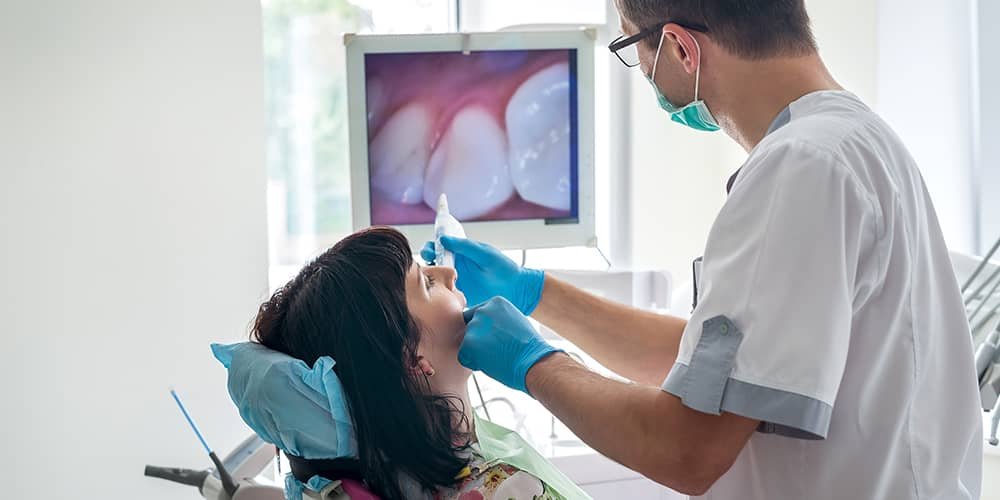
We rely on the support of dedicated partners to expand our reach and impact. If your organization is passionate about community health and wants to join the fight against oral cancer, we invite you to become a screening partner. We collaborate with various organizations, including healthcare providers, community centers, and businesses, to host screening events and raise awareness. Partnering with us allows you to make a tangible difference in the lives of others and become a vital part of our mission. Contact us to discuss partnership opportunities.
The Role of Dental Professionals
Dental professionals are on the front lines in the fight against oral cancer. During routine checkups, dentists and hygienists perform crucial oral cancer screenings, often detecting early signs of the disease before patients notice any symptoms. Their expertise in identifying suspicious lesions and making timely referrals is essential for successful treatment. We work closely with dental professionals to educate them on the latest screening techniques and encourage their active participation in our outreach programs. Regular dental visits are vital for maintaining oral health and ensuring early detection of oral cancer.
